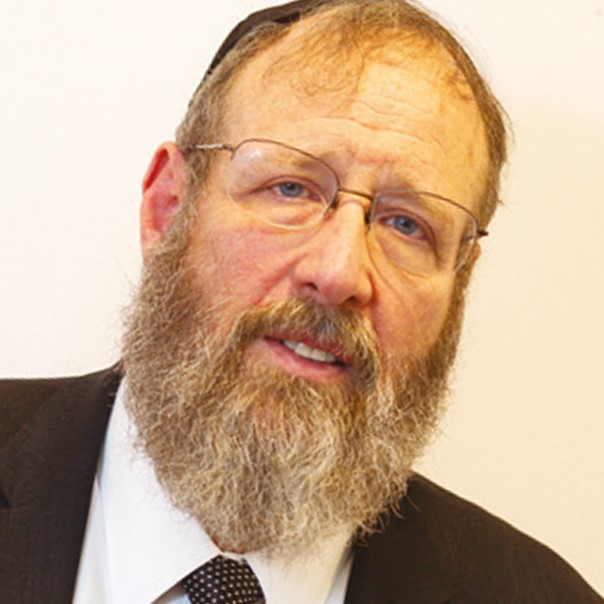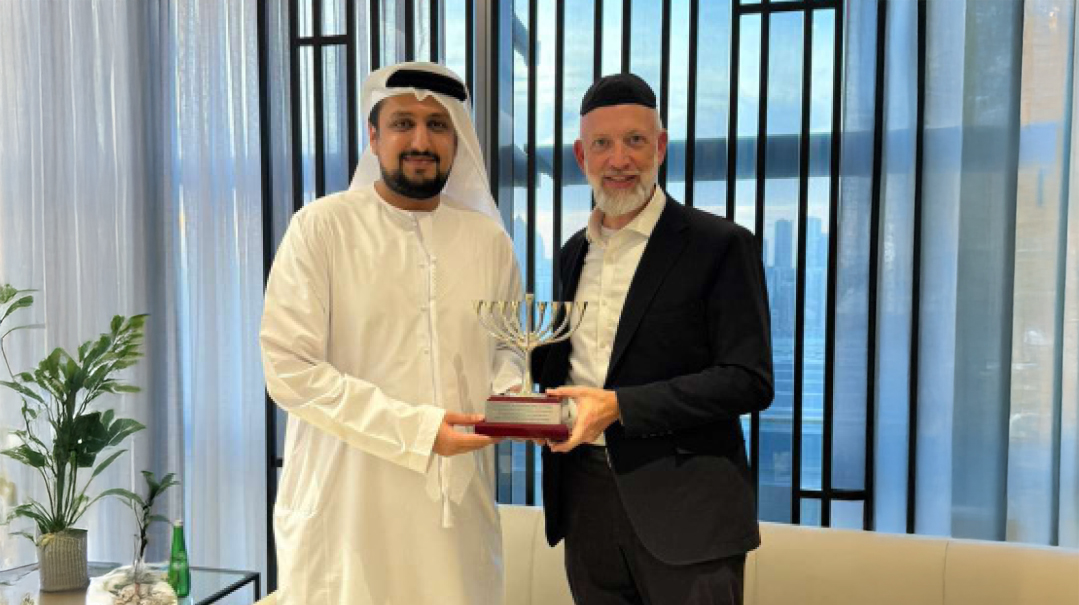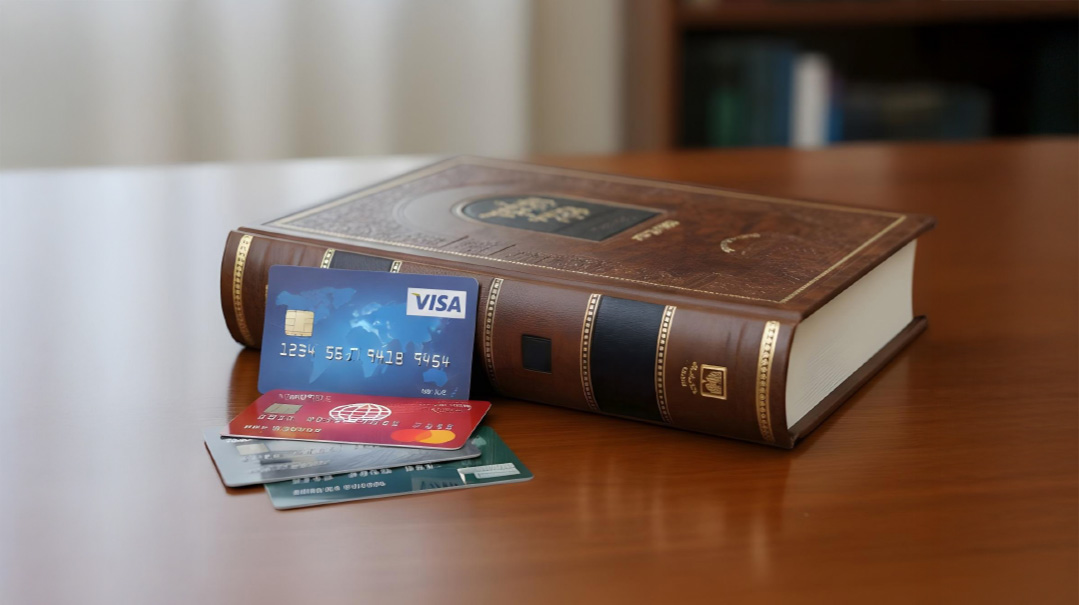Oppression and Expression

The most opportune moment to begin the process of redeeming our personal dibbur ought to be Pesach night
T
he galus of Mitzrayim is unique in many ways. Unlike the other galuyos, it does not seem to be a punishment for sins, but rather a prerequisite for Bnei Yisrael to become the nation of Hashem. Although Chazal connect certain shortcomings in Avraham Avinu’s conduct to his children’s descent into Mitzrayim, these links seem to be more of a remez, an allusion, than the main reason. (See Maharal Gevuros Hashem for a detailed explanation.)
The second puzzling aspect of our experience in Mitzrayim is that Bnei Yisrael’s pain and suffering, which we discuss in great detail, were only a symptom of that galus. The underlying cause of the galus is the decree, “Your children will be strangers in a land not theirs,” and “They shall be enslaved to them.”
Both decrees can — and did — cause great suffering, but suffering is not the essence of these two states. By understanding the exact nature of the galus of Mitzrayim, we can understand more precisely the nature of our geulah from Mitzrayim.
To fully comprehend this seminal event of our nationhood and what it means to be Hashem’s nation, let’s first gain a deeper understanding of what it means to be an individual.
A person is called a medaber — “one who speaks.” By speech, we do not mean the mechanical emission of sounds; parrots can do that, and today, voice simulators do it extremely well. Medaber, rather, refers to “expression.” Man contains within himself a vast reservoir of ideas, understanding, and feelings. By harnessing the power of speech, he has the ability to concretize them, express them, and make them part of the public domain.
This is true of man as an individual, and it is true of Klal Yisrael as well. Hashem states, “I have formed this nation to tell of My praises” (Yeshayahu 43:21). This means Klal Yisrael harbors very deep neshamos that need to express themselves as fulfillment of their Divine mandate. They have undergone experiences that are clear Hashgachah pratis and are waiting to be put into words.
The ultimate actualization of both adam and Yisrael is expression. Conversely, the ultimate pain is suppression, the inability to express our essence. (This is why people will risk their lives to combat regimes that squelch free self-expression, even if their lives are otherwise comfortable.)
This suppression, then, was the essence of Galus Mitzrayim. As darkness preceded light in the very act of Creation, so too did the darkness of Galus Mitzrayim precede the formation of Klal Yisrael. The hardship of this galus was the suppression generated by living in a strange land, and even more so by the enslavement therein. Even without physical suffering, the Jews were in a state of galus.
Freedom from Mitzrayim, therefore, meant the ability to express themselves, to become the nation that was formed for the purpose of self-expression, “that tells of My glory.” Supporting this idea, the seforim (widely quoted Zohar in parshas Va’eira) describe the constraints of this galus by expounding that in Egypt, “speech was in galus.”
That is why the central mitzvah of the Seder evening is speech. This focus on speaking at length is unique, for even regarding divrei Torah, we are taught the virtue of concise language: “A person should always teach his students with brevity” (Pesachim 3b). The Rambam (Deios 2:, 4) similarly states that a person should use “few words to convey much meaning.” Nevertheless, on this august evening we are enjoined, “The more one relates, the more one is praiseworthy” (Haggadah).
The reason is that brevity is indeed laudable when our goal is to transmit knowledge or information. However, on Pesach night, when our goal is expression itself, the more we express, the greater we are.
Throughout history, we have endured times when outside oppressors prevented us from expressing ourselves. Our hearts and minds were bursting to pour forth, but the Spanish Inquisitors, the Russian czars, the Communists, and anti-Semitic rulers throughout Europe muzzled us.
Today, baruch Hashem, we are in a relatively strong position. Almost everyone in Klal Yisrael is free to say and do as he or she wishes. Ironically, however, we find it difficult to express ourselves. We go through all the motions, do all the mitzvos, and say all the right things, but we do not feel that our “self” is being expressed in these words and deeds.
When asked to speak about any matter of Yiddishkeit, how often do we feel that it is the expression of our inner self, and how often do we feel we are simply repeating something that someone else wrote? It is not, chas v’shalom, that we don’t believe it to be true; but still, it is not an expression of our inner self. It is like food that when properly digested becomes “us” — incorporated as an essential part of our unique cells. But when we spit back something undigested, it retains its original identity. It has never become “us.”
This deficiency in expression is a double-edged sword: On the one hand, the mitzvos we perform feel lifeless, while on the other hand, our inner soul is languishing in its prison waiting desperately to break free and realize itself. It seems that there is an “orlas halev” — a callus that has encased our hearts.
This is the galus of our times, awaiting a redeemer.
The most opportune moment to begin the process of redeeming our personal dibbur ought to be Pesach night. It is the season of geulah, and the Seder is the time to speak and express the thoughts trapped within.
Especially if we are leading the Seder, we feel we should be using our power of speech to convey the story of Yetzias Mitzrayim in its many details. But sippur — the telling of this story — does not mean “saying” or “reciting.” It means “expressing.” Its primary purpose is not to inform the listener (see Malbim, Tehillim 19:2). Instead, it means telling stories that are personal experiences, stories that meld with and express our inner self, that are close to our hearts.
The problem is not that, Heaven forbid, we don’t believe what we are saying — it is that we are not living the words.
The halachah is that each of us is obligated “to see himself as if he was personally liberated from Mitzrayim.” Perhaps this is the real meaning behind a strange exchange between Rav Nachman and Daro, his slave. The Gemara relates that Rav Nachman asked Daro, “A master who frees his slave and (as a bonus) gives him silver and gold, what should the slave say in return?”
Daro said, “He ought to thank and praise his master!”
Rav Nachman then proclaimed, “We need no longer recite Mah Nishtanah.”
This exchange seems utterly pointless. What kind of question is that? And what was so incredibly profound about Daro’s reply? Wouldn’t any person on the planet give the same exact answer?
The answer is that the point of this exchange was not to elicit enlightening information from Daro. Rather, it was to hear the voice of someone languishing in slavery utter these words! Mah Nishtanah is meant to highlight for us the personal experience we are partaking in; hearing the personal words of Daro evoked in Rav Nachman a similar sense of personal experience. Only a slave could express this answer with the entirety of his person invested in the words.
The task facing us on the night of Pesach is indeed challenging. To properly prepare for that task, we need to ponder the words of the Haggadah and its commentaries. It is only when these words strike the deepest of chords within our soul that we can we begin the process of expressing ourselves through them.
When our children tell us the simplified pshatim they’ve been taught, we can encourage them to relate the ones that seem most relevant to them, in words that clearly convey they are speaking to themselves rather than merely reciting pshatim, beautiful as they are.
When we learn for ourselves and teach our children to mull and ponder the words of chachameinu zichronam livrachah, when those words strike a resonant note in our neshamos, and we begin the arduous task of translating and understanding the words that are ours, we will have begun the process of geulah. We start the emancipation of our dibbur the night of the Seder, and once freed, it will remain a ben chorin the rest of the year.
(Originally featured in Mishpacha, Issue 907.
Oops! We could not locate your form.







